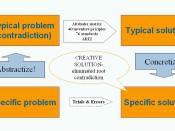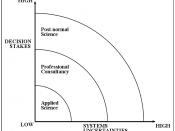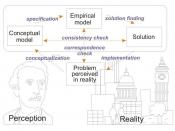INTRODUCTION
Total Systems Intervention (TSI) is a generic approach to improvement in human systems, which critically assesses the strengths and weaknesses of system methodologies and helps practitioners to decide which methodologies to use when and can provide reasons why. TSI helps its users to identify informed and coordinated strategies for improvements in organizational and societal situations. TSI process itself can produce improvements in terms of organizational and societal learning and emancipation. TSI provides guidance for the activities of problem solving including planning, designing, evaluating, diagnosis, and decision making.[1]
EMERGENCE OF CRITICAL SYSTEMS THINKING
A wide array of new theories has been promulgated in academic circles by organisational analyst. We know classical management theory through Frederick Taylor's scientific management, Max Weber's bureaucracy theory and Henry Fayol's administrative management theory. The aim of these theories was to put management on firm scientific grounds and to enhance this through rational thought. Following classical management theory came human relations' theory, which deals with human needs which classical theories neglect.
The next school of thoughts was systems theory, which describes an organisation as if it were a distinct system that interacts with and adapts to its environment. Contingency theory was next, where ideal organisational processes are seen to be contingent on crucial factors, such as organisation's size, the technology it uses and/or the nature of its environment.
There are basic underlying models that help to describe the theories. The models are essentially twofold: mechanistic and organic. The classical ideas picture organisations as machines, whereas human relations' theory and systems and contingency approaches treat organisations like organisms. These models have been found impoverished through critiques and alternative compositions. Furthermore, systems ideas were not geared specifically to addressing cultural and symbolic processes, macro-level power relations, or the interaction between theoretical innovation and social context. This burgeoning...


